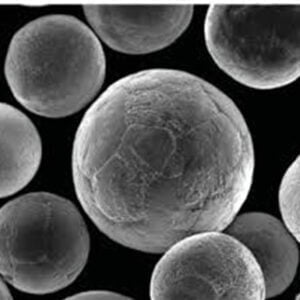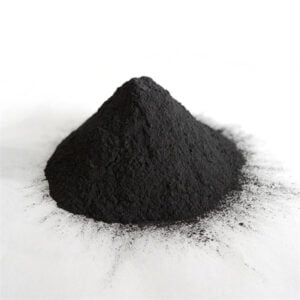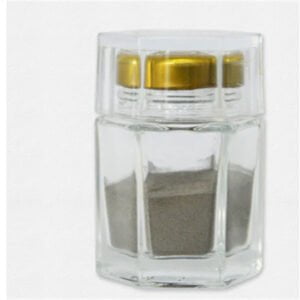ニオブの概要
目次
ニオビウム は、あまり話題に上ることのない金属かもしれないが、様々な産業に与える影響は否定できない。記号Nb、原子番号41で表されるこの万能元素は、多くの用途で貴重な存在となる驚くべき特性を備えています。航空宇宙、医療技術、エレクトロニクスのいずれの分野においても、ニオブは大きな変化をもたらすものです。この包括的なガイドでは、ニオブの特性や用途から特定の金属粉末モデル、サプライヤーに至るまで、ニオブについて知っておくべきあらゆることを探ります。
ニオブの概要
コロンビウムと呼ばれることもあるニオビウムは、光沢のある灰色の遷移金属で、極端な温度に耐え、腐食に抵抗する能力で有名である。その発見は19世紀初頭にさかのぼるが、その真の可能性は現代に実現されつつある。ニオビウムは主にパイロクロアという鉱物から産出され、ブラジルとカナダでよく見られる。
主な詳細
- シンボル Nb
- 原子番号: 41
- 密度が高い: 8.57 g/cm³
- 融点: 2,468度C(4,474度F)
- 沸点: 4,927度C(8,901度F)
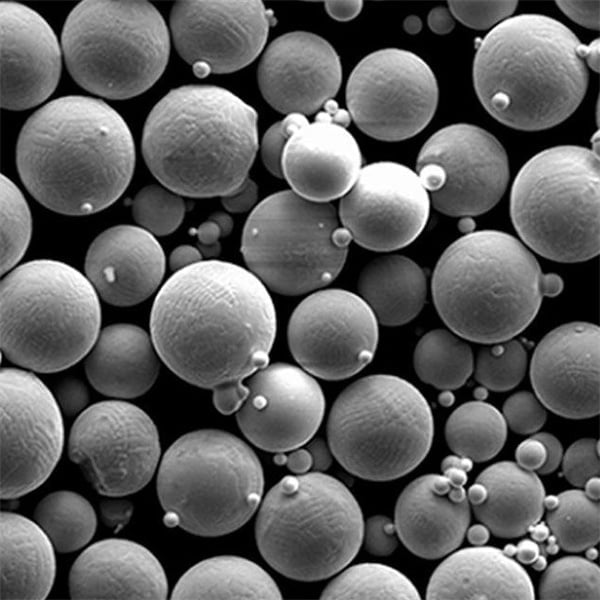
ニオビウム 金属粉モデル
ニオブ金属粉末には、用途に合わせた様々なモデルがある。ここでは、ニオブ粉末の注目すべき10モデルを、その説明とともに紹介する:
- ニオブ粉(Nb-01): 高温用途に最適な高純度ニオブ粉末。
- 水素化ニオブ粉末(NbH-02): ニオブ粉末を水素と結合させたもので、水素貯蔵システムに使用される。
- 炭化ニオブ粉(NbC-03): 卓越した硬度を持ち、切削工具や耐摩耗用途に使用される。
- 窒化ニオブ粉末(NbN-04): 超伝導特性で知られ、電子機器に使用される。
- 酸化ニオブ粉末(Nb₂O₅-05): 光学部品や電子部品に使用される。
- ニオブアルミナイド粉末(NbAl₃-06): 航空宇宙用途の高強度粉末。
- ニオブシリサイド粉(Nb₃Si-07): 高温構造材料に使用される。
- ホウ化ニオブ粉末 (NbB-08): 優れた耐摩耗性を持ち、ハードコーティングに使用される。
- ニオブタングステン粉(NbW-09): 様々な合金の材料特性を向上させるために使用されるブレンド。
- ニオブチタン粉末(NbTi-10): MRI装置や粒子加速器の超伝導マグネットに利用されている。
ニオブ粉末の種類、組成、特性および特徴
| パウダーモデル | 構成 | プロパティ | 特徴 |
|---|---|---|---|
| ニオブ粉 (Nb-01) | 純Nb | 高融点、耐食性 | 高温用途に最適 |
| 水素化ニオブ (NbH-02) | Nb + H | 高い水素貯蔵能力 | 水素貯蔵システムに使用 |
| 炭化ニオブ (NbC-03) | Nb + C | 卓越した硬度、耐摩耗性 | 切削工具に最適 |
| 窒化ニオブ (NbN-04) | Nb + N | 超伝導特性 | 電子機器に使用 |
| 酸化ニオブ (Nb₂O₅-05) | Nb + O | 高誘電率、光学特性 | エレクトロニクスと光学に使用 |
| ニオブアルミナイド (NbAl₃-06) | Nb + Al | 高強度、耐高温性 | 航空宇宙用途 |
| ニオブシリサイド(Nb₃Si-07) | Nb + Si | 高融点、良好な耐酸化性 | 高温構造材料 |
| ホウ化ニオブ (NbB-08) | Nb + B | 優れた耐摩耗性 | ハードコーティングに使用 |
| ニオブ・タングステン (NbW-09) | Nb + W | 機械的特性の向上 | 様々な合金用途 |
| ニオブチタン(NbTi-10) | Nb + Ti | 超伝導特性 | 超伝導マグネットに使用 |
ニオブの用途
ニオブのユニークな特性は、幅広い用途に適しています。ここでは、様々な産業における主な用途のいくつかをご紹介します:
| 産業 | 申し込み | メリット |
|---|---|---|
| 航空宇宙 | ジェットエンジン、ロケット部品 | 高い強度対重量比、耐熱性 |
| 医療技術 | MRI装置、手術器具 | 生体適合性、超伝導特性 |
| エレクトロニクス | コンデンサー、超伝導体 | 高い導電性、安定性 |
| エネルギー | ガスパイプライン、原子炉 | 耐食性、強度 |
| 自動車 | 高性能合金 | 軽量、燃費向上 |
| 光学 | カメラレンズ、光学フィルター | 高屈折率、安定性 |
ニオブ粉末の仕様、サイズ、等級、規格
ニオブ粉末は、さまざまな用途のニーズに応えるため、さまざまな仕様、サイズ、等級、規格があります。
| 仕様 | サイズ範囲 | グレード | 規格 |
|---|---|---|---|
| Nb-01 | 1~50ミクロン | 99.9%純度 | ASTM B708、ISO 13703 |
| NbH-02 | 1~20ミクロン | 99.5%純度 | ASTM B708、ISO 13703 |
| NbC-03 | 0.5~10ミクロン | 99.8%純度 | ASTM B708、ISO 13703 |
| NbN-04 | 1~30ミクロン | 99.7%純度 | ASTM B708、ISO 13703 |
| Nb₂O₅-05 | 1~40ミクロン | 99.9%純度 | ASTM B708、ISO 13703 |
| NbAl₃-06 | 2-50ミクロン | 99.5%純度 | ASTM B708、ISO 13703 |
| Nb₃Si-07 | 1~25ミクロン | 99.6%純度 | ASTM B708、ISO 13703 |
| NbB-08 | 0.5~15ミクロン | 99.8%純度 | ASTM B708、ISO 13703 |
| NbW-09 | 1~30ミクロン | 99.7%純度 | ASTM B708、ISO 13703 |
| NbTi-10 | 1~20ミクロン | 99.9%純度 | ASTM B708、ISO 13703 |
サプライヤーと価格 ニオビウム 粉類
高品質のニオブ粉末を入手するには、適切なサプライヤーを見つけることが重要である。ここでは、いくつかの注目すべきサプライヤーとその価格詳細を紹介する:
| サプライヤー | モデル | 価格(kgあたり) | 連絡先 |
|---|---|---|---|
| 先進冶金グループ | Nb-01 | $350 | [email protected] |
| ニオビウムテック株式会社 | NbH-02 | $400 | [email protected] |
| カーバイドマテリアルズ | NbC-03 | $450 | [email protected] |
| スーパーコンダクター・メタルズ社 | NbN-04 | $500 | [email protected] |
| 株式会社オプティカルマテリアル | Nb₂O₅-05 | $320 | [email protected] |
| エアロアロイ社 | NbAl₃-06 | $480 | [email protected] |
| 高温合金株式会社 | Nb₃Si-07 | $460 | [email protected] |
| ハードコート・ソリューション | NbB-08 | $430 | [email protected] |
| アロイテック・インダストリーズ | NbW-09 | $470 | [email protected] |
| スーパーマグネット・テクノロジー | NbTi-10 | $520 | [email protected] |
ニオブの長所と短所
どんな素材にも長所と短所があり、ニオブも例外ではありません。ここでは、ニオブの長所と短所を比較し、明確なイメージをお伝えします。
メリット
- 高融点: ニオブの高い融点は高温用途に最適で、他の多くの金属よりも長持ちする。
- 耐食性: ニオブの耐腐食性は、特に過酷な環境下での長寿命と耐久性を保証します。
- 超伝導: ある種のニオブ合金は超伝導特性を示し、高度な電子機器や医療機器にとって極めて重要である。
- 生体適合性: ニオブは無毒性で生体適合性があるため、医療用インプラントや機器に適している。
デメリット
- コストだ: ニオブ
イウムは、その希少性と複雑な抽出プロセスのため、他の金属に比べて高価である。
- 空室状況 地理的な供給源が限られているため、ニオブの入手は制約を受け、サプライチェーンに影響を及ぼす可能性がある。
- 処理の課題: ニオブは融点が高く、酸素との反応性が高いため、加工や製造に課題がある。
比較 ニオビウム パウダーモデル
| モデル | メリット | デメリット | 最適 |
|---|---|---|---|
| Nb-01 | 高純度、多用途 | 高コスト | 高温アプリケーション |
| NbH-02 | 高い水素貯蔵能力 | 水素貯蔵以外での限定的な使用 | 水素貯蔵システム |
| NbC-03 | 卓越した硬度と耐摩耗性 | 高い | 切削工具、耐摩耗用途 |
| NbN-04 | 超伝導特性 | 処理の複雑さ | 電子アプリケーション |
| Nb₂O₅-05 | 高い誘電率 | 光学/エレクトロニクス分野での特定用途 | 光学および電子部品 |
| NbAl₃-06 | 高強度、耐熱性 | 高コスト | 航空宇宙用途 |
| Nb₃Si-07 | 良好な耐酸化性 | 加工の課題 | 高温構造材料 |
| NbB-08 | 優れた耐摩耗性 | 用途限定 | ハードコーティング |
| NbW-09 | 機械的特性の向上 | 高コスト | 合金アプリケーション |
| NbTi-10 | 超伝導特性 | 高い | 超伝導マグネット |
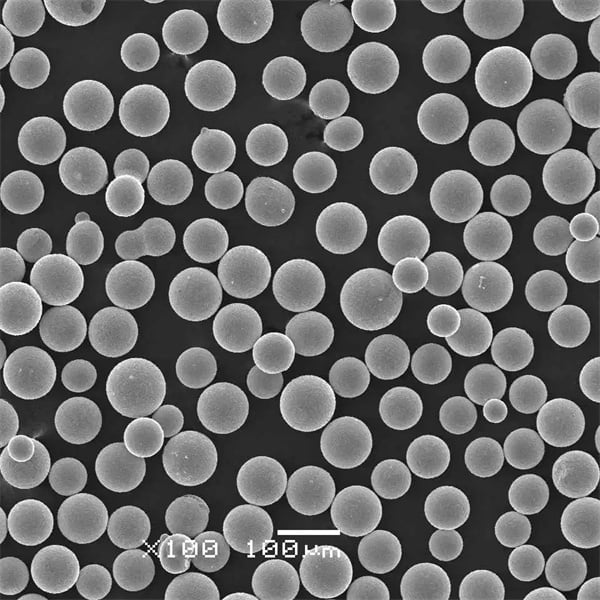
よくあるご質問
| 質問 | 答え |
|---|---|
| ニオブは何に使われるのか? | ニオブは、そのユニークな特性から、航空宇宙、医療技術、エレクトロニクス、エネルギー、光学分野で使用されている。 |
| なぜニオブは高価なのか? | ニオブの希少性と複雑な抽出工程が、その高コストの一因となっている。 |
| ニオブは医療用として安全か? | そう、ニオブは生体適合性があり、無毒性であるため、医療用インプラントや医療機器に安全なのだ。 |
| ニオブの超伝導特性とは? | NbTiのような特定のニオブ合金は超伝導特性を示し、MRI装置や粒子加速器に不可欠である。 |
| ニオブの主な産地は? | ニオブは主にブラジルとカナダで発見され、多くの場合、パイロクロアという鉱物から抽出される。 |
| ニオブは他の金属と合金にできますか? | そう、ニオブはチタン、タングステン、アルミニウムなどの金属と合金にしてその特性を高めることができる。 |
シェアする
MET3DP Technology Co., LTDは、中国青島に本社を置く積層造形ソリューションのリーディングプロバイダーです。弊社は3Dプリンティング装置と工業用途の高性能金属粉末を専門としています。
関連記事
Met3DPについて
最新情報
製品

3Dプリンティングと積層造形用金属粉末






